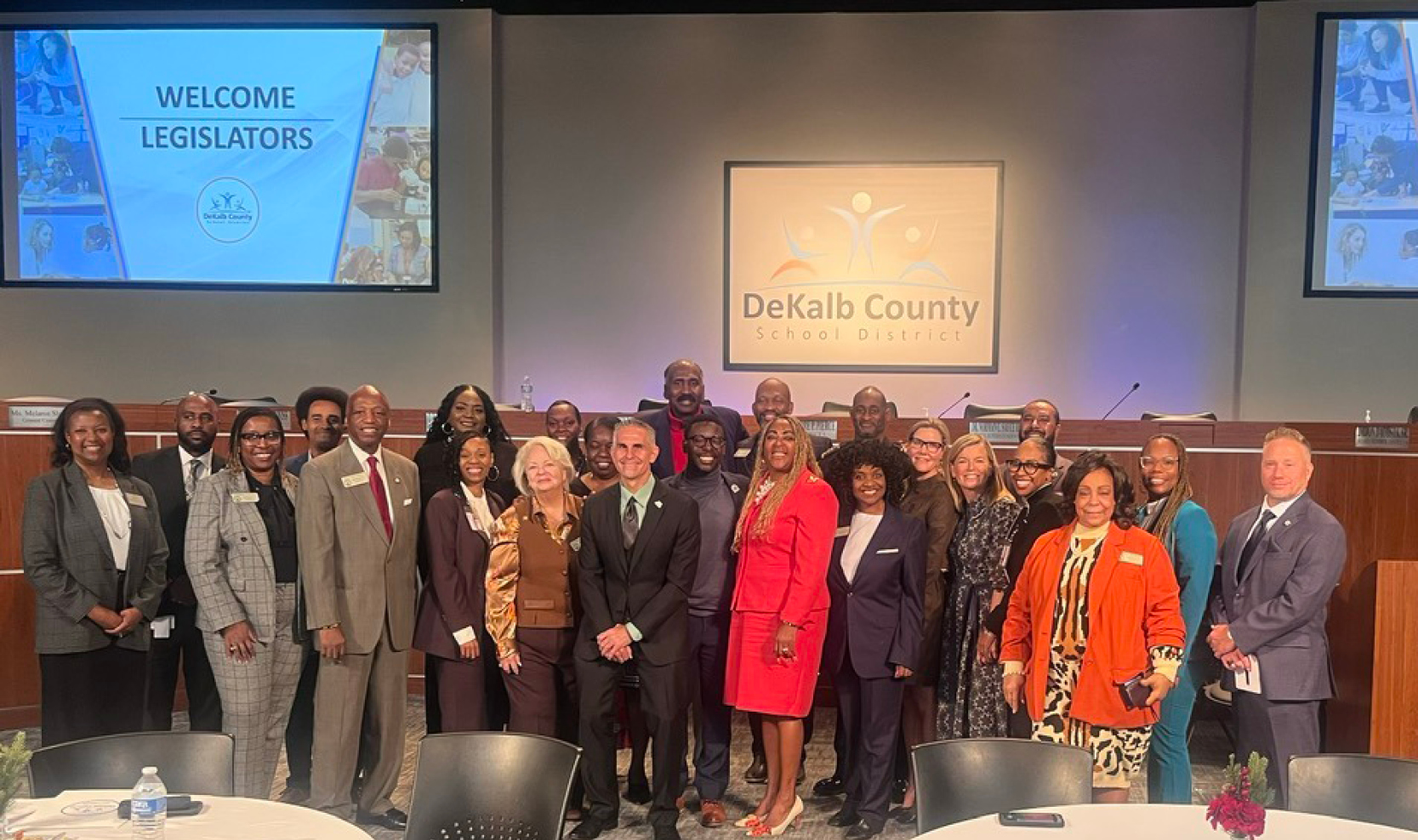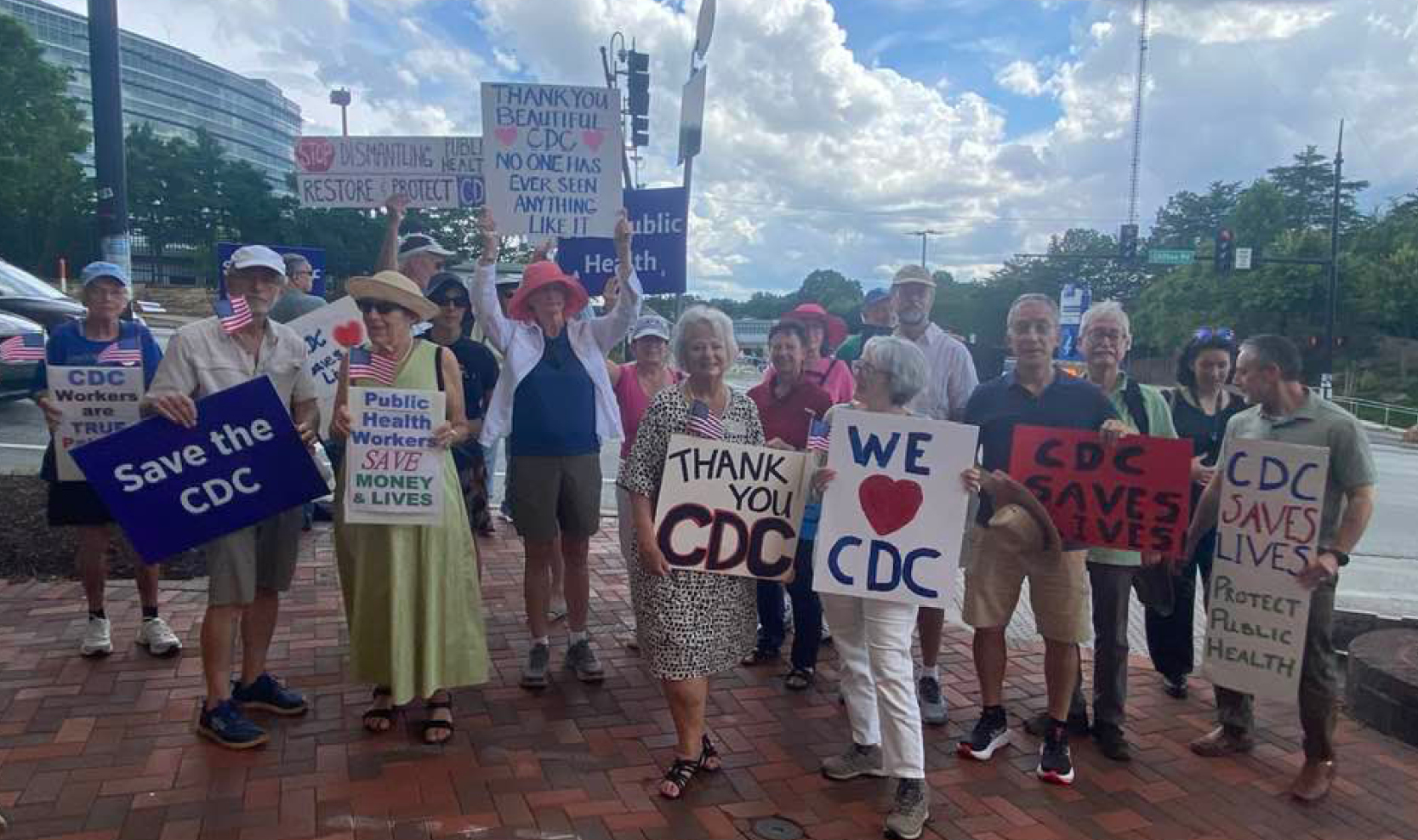Violence fuels urgency to house people at Atlanta homeless camp

By Reed Williams, The Atlanta Journal-Constitution
Inside his tent, Willie Jeffries shook with fear as the armed man threatened him from outside.
“He said, ‘Come up out of there,’” Jeffries recalled in an interview. “He said, ‘I’ll kill everyone around here.’”
Huddled in the tent with his girlfriend and her friend, Jeffries stayed quiet until the man left. Sometime later, the man attacked someone else nearby and was killed in self-defense, according to police.
The fatal shooting of Steven Troy Thomas on April 18 is one of several violent incidents to erupt this year around a sprawling homeless encampment off Cooper Street Southwest in Atlanta, according to a review of police reports by The Atlanta Journal-Constitution.
The recent violence and other concerns have prompted Partners for HOME to intensify efforts to house the encampment’s residents, including Jeffries. The nonprofit is working with the city on its strategy to reduce homelessness. Highlighting the broader dangers of living on the streets, the AJC found that at least a dozen people experiencing homelessness have been killed this year across metro Atlanta.
The Cooper Street encampment, though, has become a specific priority because of its large size and concerns about public safety and health issues among residents living near it.
The city wants to shut down the camp, located in the Mechanicsville neighborhood south of downtown, by Sept. 30 and replace it with a mixed-income development on three properties. The city owns one of the plots and is working to acquire 405 Cooper St. SW from Atlanta Public Schools, and the third property from Fulton County, said Josh Humphries, a senior adviser to Mayor Andre Dickens on housing issues.
Humphries said the current development plan would include about 100 modular apartments for formerly homeless individuals, along with services like mental health and substance use treatment, education and employment opportunities. The plan also calls for another 36 market-rate apartments and 70 to 100 townhouses, the majority of which would be market-rate.
City Councilman Jason Dozier said he supports the planned development but emphasized that it “must be done in partnership with and within the context of the broader community.”
“My constituents have been very frustrated with the status quo,” Dozier said, referring to the existing encampment. “For me that was what was most important: The status quo isn’t acceptable. We have to do something. At the same time, the city has a severe housing shortage, housing crisis. I’ve been supportive of building housing on that site as a way to address both issues at the same time.”
Residents of the Cooper Street camp sometimes move between there and a nearby encampment under Interstate 20 off Pryor Street Southwest, outreach workers said. The AJC’s review of more than 60 police reports found that at least six aggravated assaults, including three shootings, were reported this year in the Pryor Street camp or nearby.
Partners for HOME’s goal is to ensure that everyone in the Pryor Street camp gets housing and ultimately that the camp is shut down, said Cathryn Vassell, the agency’s CEO. No date has been set for its closure.
Across the city of Atlanta, at least eight people experiencing homelessness have been killed this year, along with four other people in East Point, Union City and the Stone Mountain area, according to data and reports from the medical examiner’s offices of Fulton and DeKalb counties. In the city of Atlanta alone, a total of at least 11 aggravated assaults, three robberies and five sexual assaults against people who appeared to be homeless were reported in the first half of 2024, the AJC found.
Some national experts and advocates say the prevalence of violent crime against people who are homeless shows that they sometimes are not viewed as complete human beings.
Donald Whitehead Jr., executive director of the National Coalition for the Homeless, believes that Atlanta and other cities add to this problem by closing camps and driving some people into isolation, which can be even more dangerous.
“If you put people in vulnerable situations, then the opportunity for them to be in violent situations is going to increase,” said Whitehead, adding that drug dealers and others often prey on people experiencing homelessness, many of whom have mental health issues and drug addictions.
Some residents of homeless camps refuse offers of shelter, for many reasons, including because they don’t want to move away from their community and their support system or because they don’t want to live close to people they don’t know. But many experts and policymakers agree that finding homes for as many unsheltered people as possible, and providing services to all the others, makes them safer.
“The solutions are going to come from providing housing,” said state Rep. Mary Margaret Oliver, a Democrat who sits on a homelessness work group for the Commission on Behavioral Health Innovation and Reform. “You can talk about everything else in the world, but basically we have a housing crisis.”
“We are not moving fast enough to provide supportive housing services,” Oliver added.
At the Cooper Street encampment, outreach workers like Tracy Woodard of the homeless advocacy group Intown Cares are working hard to find housing for the roughly 60 people living there. It’s especially challenging because people move in and out of the porous community and many of them lack the identification cards, birth certificates and social security cards needed to apply for housing. Partners for HOME, which is coordinating the housing efforts at Cooper Street, is working with a technology provider to streamline the documentation process.
Partners for HOME said its team has found homes for 64 people from the Cooper Street camp over the past year. The camp includes young adults, people who are chronically homeless and veterans.
Officials with VA Atlanta Health Care said its outreach workers have been visiting the camp since spring 2024 and are now looking for housing for six veterans living there. Two other veterans have declined enrollment for housing, and VA outreach workers have been unable to locate another person who might be eligible.
Meanwhile, tensions sometimes ripple through the camp.
One day in mid-July, outreach workers were handing out food and there wasn’t enough for everyone. Suddenly, two men faced off in fighting stances and a dog jumped into the fray as Woodard tried to calm them down. During another dispute on a hot day in August, one man clutched a large rock menacingly, as if he planned to hurl it at another person.
“Everyone’s miserable because you’re so hot and thirsty and you don’t want to do anything and it tends to flair tempers,” Woodard said.
Even though outreach workers are prioritizing the Cooper Street camp for fast-track housing, Woodard said its residents are frustrated that it can take weeks or months to get all the proper documents.
“Some people can live in a camp and get along with people and be diplomatic, and they can manage the stress,” Woodard said. “But oftentimes, it’s just too much. They’re like, ‘I can’t be out here, I can’t be sleeping on the ground and hungry and dirty all the time.’ And they just hit their limit.”
According to the AJC’s review of police reports, officers found a woman in the Cooper Street camp in April who had been shot in the side of her head. In June, someone approached two people parked near the camp in an RV and told them they had 10 seconds to “get out of our area.” While the couple was driving away, a man wearing a ski mask fired eight gunshots at the vehicle, a police report said.
Thomas, the man who was killed April 18 on Cooper Street, had been terrorizing people in the area, had accused people of going inside his tent, and had beaten up another person earlier on the day he was killed, according to a police report. The man who killed Thomas admitted to police that he sold drugs in the area. He told them that Thomas hit him in the face with a BB gun rifle and had pulled a handgun on him. They started fighting and struggling over the handgun, it went off, and a bullet struck Thomas’s chest, the police report says.
Residents of the camp later thanked the man who had killed Thomas, he told police.
In such an environment, Jeffries says he often prays for his own safety in the encampment that has been his home for four years. He also has three dogs that offer some protection.
Others arm themselves. In a recent interview at the camp, a 22-year-old resident pointed to a metal rod she had for protection. Nearby, Robert Brownlee sat with a machete under his chair.
Brownlee said he doesn’t need to use it because he avoids trouble. He said he has been homeless, off and on, since he ran away from his East Atlanta home at age 12. “I feel safe because I don’t bother nobody,” he said. “They don’t bother me — as long as you stay in your own lane.”
“That’s how I got to the age I am now,” added Brownlee, who is 43.
Antonio Bullock, who has been living at the Cooper Street camp since March, said he feels safe because he and his friends look after one another. “If I see something wrong, I tell one of them,” the 37-year-old said. “We check on each other and if I leave, I tell them I’m leaving and tell them when I get back.”
Christopher Gates, 54, said he has been homeless for four years after getting laid off from a construction job. He said he sleeps by himself, near the Cooper Street camp, because he believes that solitude is safer.
During an interview at Cooper Street in July, Gates suddenly gestured toward two men who were getting ready to fight. “Look now, look,” he said. “It’s like that all the time.”
“People will steal what you’ve got, or they’ll mistake you for someone else — try and rob you,” Gates said. “Homeless people’s lives are not valued, so they feel like they can just take what they want from you.”
The AJC’s review of homicide cases across metro Atlanta uncovered horrific acts of violence against people experiencing homelessness. One man was attacked while sitting on steps at Ted Turner Drive and Peters Street in southwest Atlanta. Surveillance footage shows that the assailant punched and stomped on the man for eight straight minutes, according to a Fulton County medical examiner report. A suspect has been charged with murder in the case.
Jeffries, for his part, is hoping to avoid danger at Cooper Street while he waits for housing. Intown Cares helped him obtain his identification card and birth certificate a few weeks ago, and on Aug. 22 he said he was planning to go get his Social Security card that day.
Getting a home could still be a couple of weeks away, though, because he also has to undergo a background check.
A new home could mean a new start for Jeffries. He’d like to get a job driving a forklift or maybe learn how to clean out dryer vents. For now, he rides his bicycle around looking for work. He also likes reading James Patterson novels to keep his mind sharp.
He said he takes life one day at a time, but he’s ready for a change.
“I’m tired of being out here,” he said.




.png)

